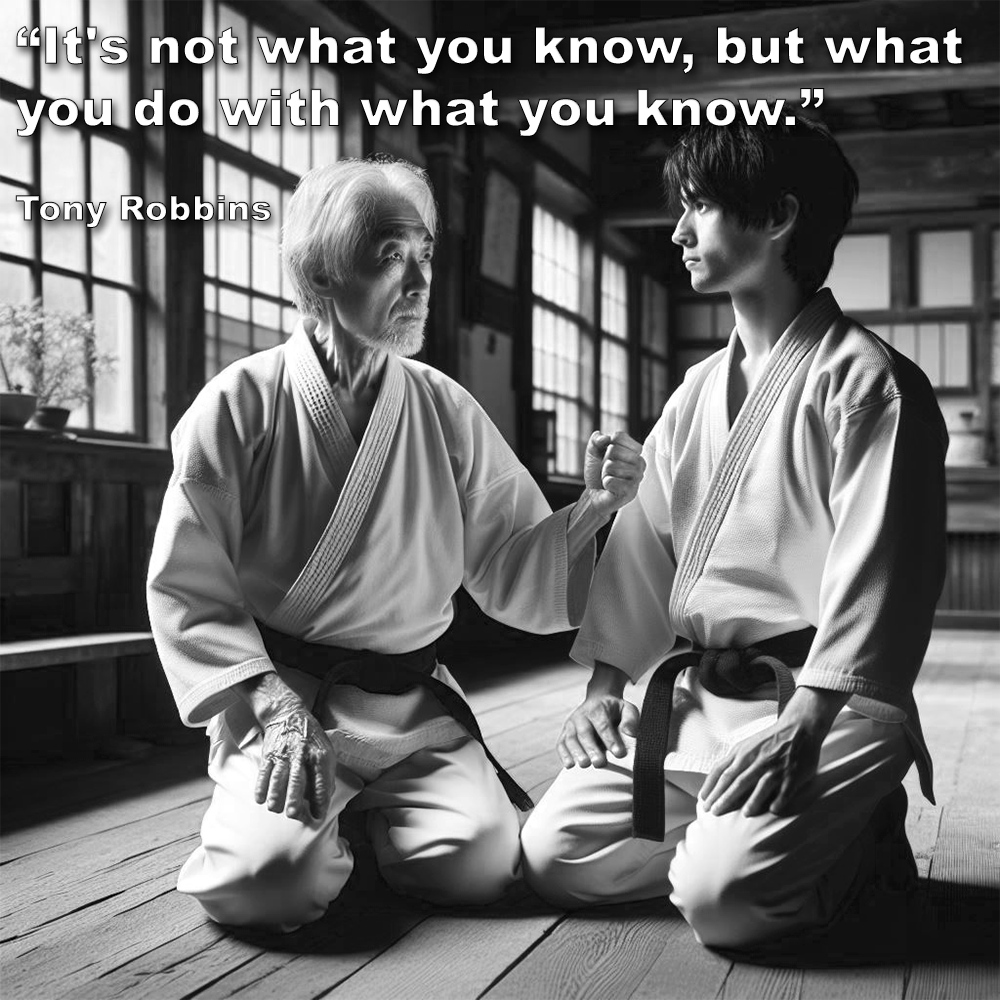
(1 minute 55 second read)
Practice has to go beyond rote repetition to a place of true comprehension and proficiency.
.
While repetition is undeniably important, without curiosity, how can you truly analyze your karate and delve into the depths of its principles, not just the techniques?
.
Curiosity is the key that unlocks a treasure trove of possibilities, allowing you to see techniques from different angles and challenge the way things are traditionally presented. It’s the hallmark of an active, engaged mind.
.
But where do these questions come from? How do we cultivate a culture of inquiry?
.
Traditional methods often emphasize blind acceptance – a dogmatic approach where students are expected to simply follow instructions. Remember the stern instructor barking orders, occasionally making physical adjustments, and shutting down any questions that dared to rise?
.
In the early days of karate in the West, many of the Asian instructors had little, if any, command of English. Consequently, students, unable to question effectively, often encountered misinformation, leading to a mentality of ‘just get on with it’.
.
The right questions are the gateway to true understanding, and the key lies in fostering a culture where questioning becomes a honed skill, a crucial part of the learning process.
.
When I ask my students if they have any questions, it’s more than a formality; it’s a genuine effort to ensure the material resonates with them. I value their input as it helps us explore the subject together, addressing any confusion or curiosity they may have. By inviting questions, I tailor my teaching to their needs, aiming for a true understanding of ‘why’ they are doing something a certain way, even if they are still in the process of applying it.
.
Instructors plant the seeds of knowledge, but true comprehension takes time and active engagement. A stifling environment that discourages questioning and feedback fosters superficiality, churning out clones who lack a deeper understanding of what they are doing. It’s a recipe for confusion and a barrier to genuine progress.
.
Perhaps this is why karate today is seen by many to be ineffective. Perhaps it is why the techniques that everyone practices are demonstrated to only work against another cooperating karate-ka.
.
Yes, repetition is essential to ingrain techniques. But the “why” is equally important as the “how.”
.
Curiosity isn’t just about seeking knowledge from external sources. It’s also about turning the lens inward, asking yourselves questions. For example, how does a movement differ when you perform a technique one way versus another? This self-inquiry fosters a deeper awareness of your own experiences.
.
The journey in the martial arts is uniquely yours, but remember, curiosity is the fuel that propels you forward on that path – and if nothing else, it can certainly help with boredom!
